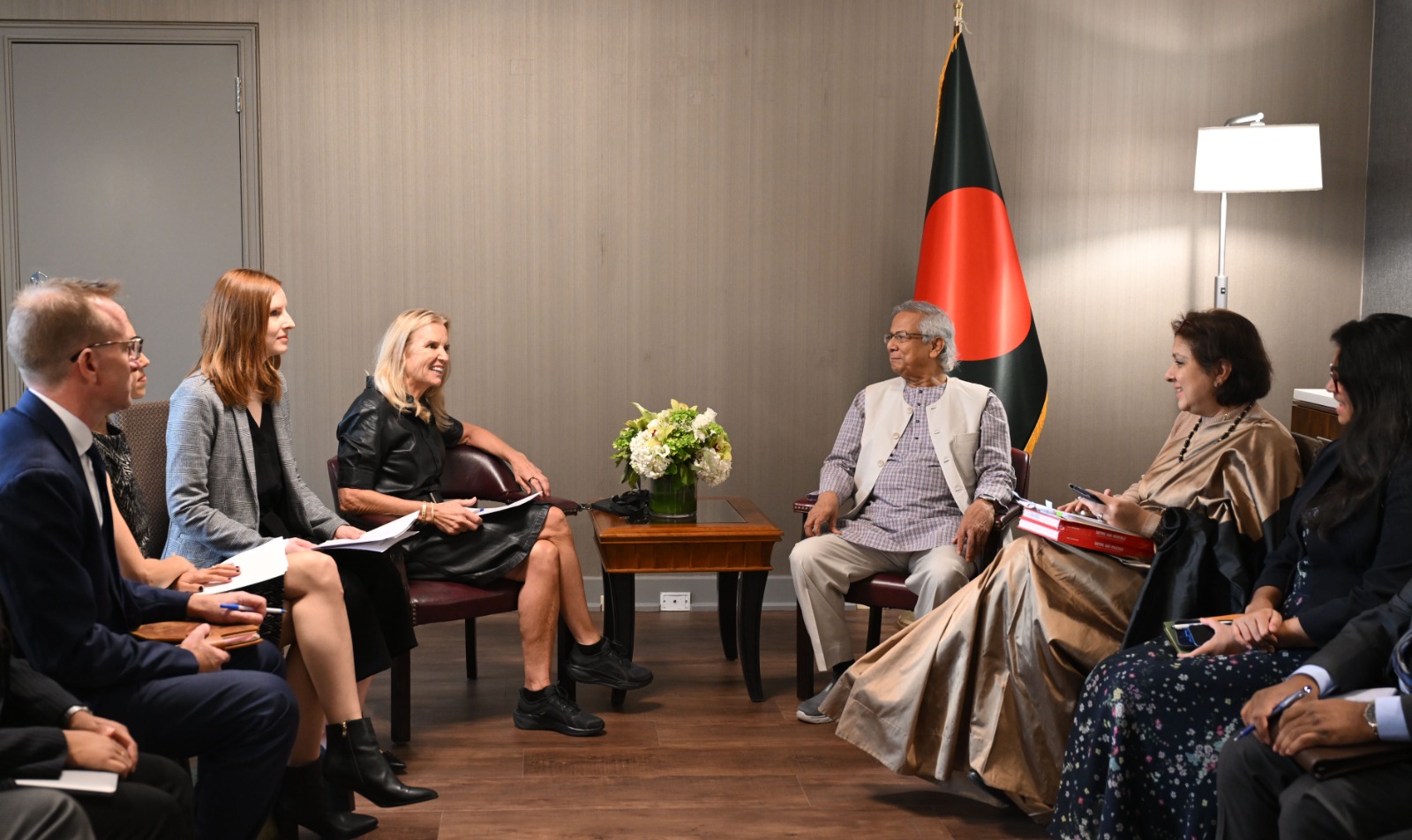News Flash

NEW YORK, Sept 29, 2025 (BSS) - Chief Adviser Professor Muhammad Yunus has called on international human rights organizations to increase their engagement with Bangladesh in the lead-up to the country's crucial national election, scheduled for February next year.
Speaking during a meeting with a delegation of prominent human rights defenders at his hotel in New York on Monday, Professor Yunus stressed importance of their continued visits.
"The most important thing is that you keep visiting. Each visit brings long-ignored issues back into the spotlight. Ultimately, you are the voice of the people," he said.
The hour-long meeting was led by Kerry Kennedy, President of Robert F. Kennedy Human Rights, and included representatives from several major international advocacy organizations.
During the discussion, Professor Yunus provided an overview of Bangladesh's preparations for the upcoming election, ongoing reform efforts across various sectors, and recent initiatives to address human rights concerns.
The Chief Adviser said, "We started with a completely broken system. We invited the UN Human Rights Office to investigate the killings that occurred last year. Their report revealed a great deal. Since then, we've begun the process of establishing a UN human rights mission, an important step forward."
He also highlighted the formation of a commission to investigate enforced disappearances.
"People are now coming forward with horrific stories. Just one case would be disturbing enough, but this went on for years. People were held in secret detention centers known as 'Aynaghar' without even knowing why. The commission's full report is still pending, but we are receiving regular updates," Professor Yunus said.
He said 11 reform commissions have been formed to provide recommendations across key sectors. A national consensus-building commission is currently reviewing those proposals, with input from various political parties involved in the interim government.
"We expect the July Charter -- outlining major constitutional reforms -- to be drafted and signed by October," he said.
Looking ahead to the February election, Professor Yunus stressed the government's commitment to ensuring a free, fair, and peaceful vote, something he said Bangladesh has long lacked.
He said, "In the past, voter rolls were full of people who never showed up. This time, we want to welcome every voter, especially women, and encourage their participation. We're launching a nationwide campaign to educate people about the voting process. Our goal is the highest voter turnout in Bangladesh's history."
However, he warned that some international actors appear to be attempting to disrupt the election process.
"Certain forces are determined to prevent the election from taking place. We don't know who they're working for, but there's a lot of money involved -- both inside and outside Bangladesh. They're well-prepared, and that's what makes the situation dangerous. The next few months are critical," he added.
Professor Yunus also urged rights groups to raise their voices against global money laundering, noting that recovering stolen national wealth is extremely difficult under current legal frameworks.
"This is people's money," he said, adding, "Banks must not be safe havens for stolen wealth. Rights groups can play a vital role by speaking out on this issue."
National Citizen Party leader Dr. Tasnim Jara, also present at the meeting, highlighted the role of young Bangladeshis in pushing for structural reforms to prevent a return to the conditions that led to the July uprising.
Delegation members emphasized the need for continued pressure on political parties to carry forward the reform agenda once a new parliament is in place, particularly in the security sector.
"To ensure long-term reforms, it's critical that political parties remain committed after the election," said John Sifton, Asia Advocacy Director at Human Rights Watch.
Catherine Cooper, Staff Attorney, Robert F. Kennedy Human Rights, Mandeep Tiwana, Secretary General, CIVICUS, Matthew Smith, CEO and Founder, Fortify Rights, Sabhanaz Rashid Diya, Executive Director, Tech Global Institute, Carolyn Nash, Asia Advocacy Director, Amnesty International, Mohammad Ashrafuzzaman, Visiting International Scholar, Ohio University and Jesselina Rana, UN Advisor, CIVICUS, among others, were attended the meeting.